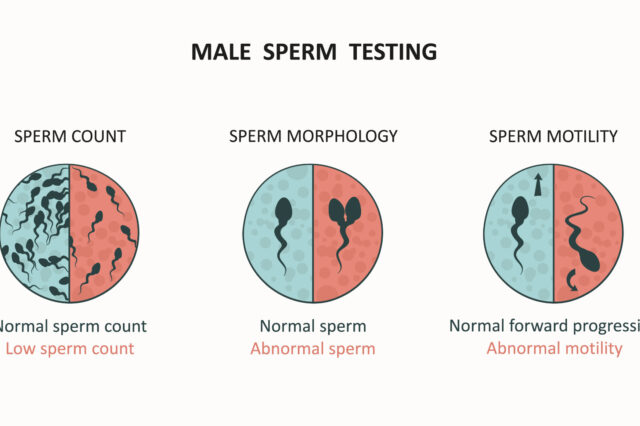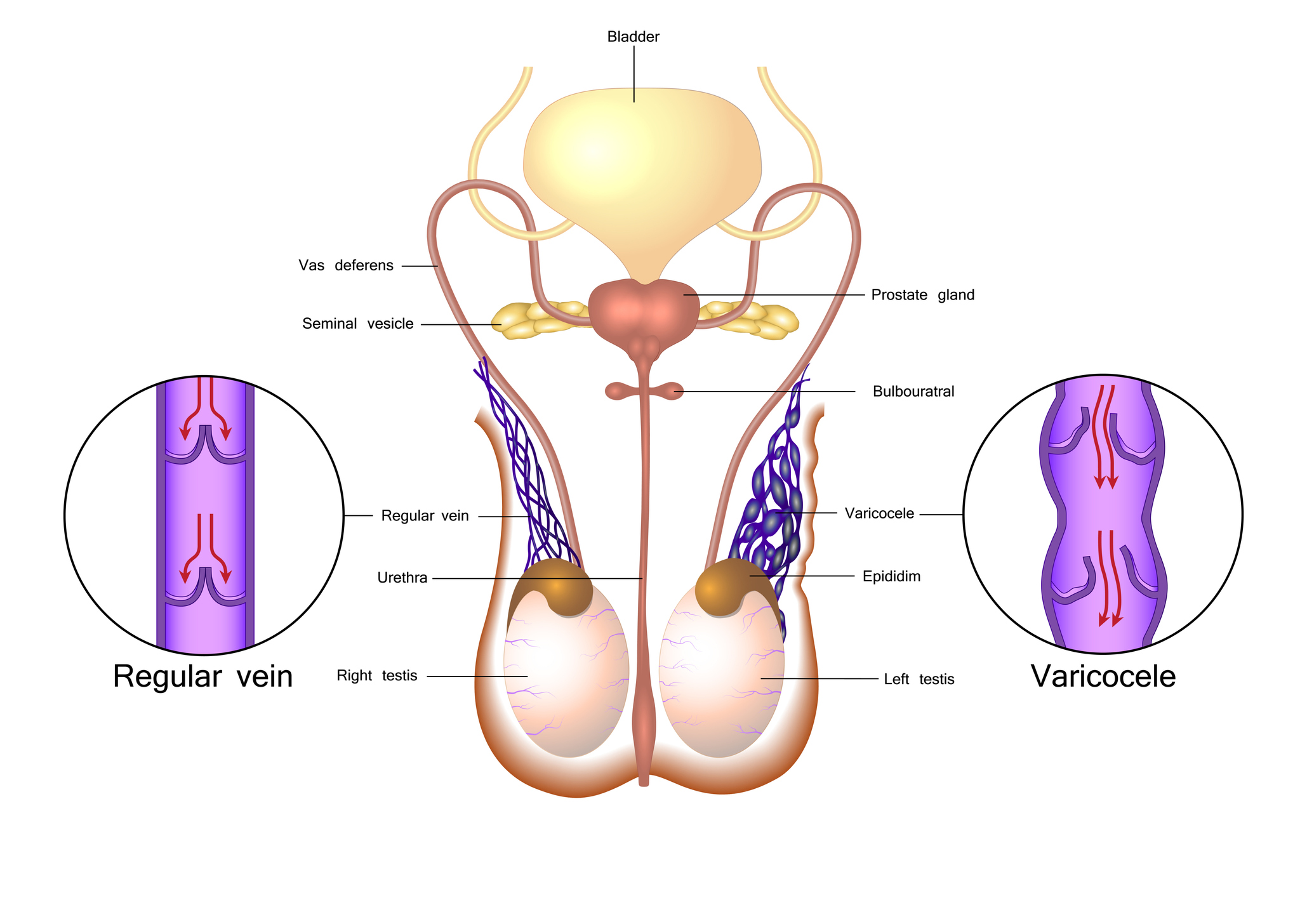From Infertility Struggles to Finding a Family at UF Health
A few years ago, Nicholas and his wife moved back to Nicholas home state of Florida to complete his training at UF Health. Their plan was that as soon as their…

Update your location to show providers, locations, and services closest to you.
A varicocele is a varicose vein of the scrotum. Varicoceles are present in 1 out of 7 men and up to 30% to 40% of men who present to a fertility clinic. The small veins that drain blood from the testicles allow it to cool which supports normal sperm production. When dilated, these veins cause blood to pool as it leaves the testicle which in turn warms the arterial blood as it enters the testicle. This can lead to decreased sperm counts as well as poor sperm quality.
Varicoceles are not always symptomatic. Men may have no symptoms while others report a constant, dull heaviness or pain in the scrotum. Other men may not find they have a varicocele until they undergo a workup for fertility. Treatment for varicocele include over-the-counter pain medicine for discomfort, though surgery is the main form of intervention. This is done microscopically, laparoscopically, or with embolization using a tiny coil or fluid in the blood vessel. Correction of a varicocele has been reported to improve the count as well as the quality of sperm.
You have chosen to have a varicocelectomy. The information below will help you understand your surgery, what will happen in the hospital and what you can expect when you go home. Below you can also find your plan of care from your doctor.
There are three commonly used surgical approaches for the correction of a scrotal varicocele. Under routine conditions, we prefer the inguinal approach (groin), using an operating microscope to locate and target all the dilated veins as well as the testicular arteries. The incision approximately 2 inches in the waist line. No muscle layers are opened, only fascia (connective tissue) beside the muscle, so there is no weakness in the muscle wall.
Sometimes a subinguinal approach is more favorable, and the incision is made just above and lateral to (but not involving) the penis.
The spermatic cord that houses these varicose veins is isolated. All of the abnormally dilated veins are isolated and tied off to prevent the continued abnormal bloodflow. A small ultrasound machine is used to make sure the testicular artery is identified and avoided. The cord is then tucked back into the incision and the skin is closed.
The side effects of a varicocele repair are remarkably low. These is a less than 1% risk of hydrocele (fluid around the testicle), hematoma (blood collection), or superficial wound infection. Varicoceles seldom return once they are treated. You may notice a persistent dilation of the veins in the scrotum if they are remarkably large; however, after the veins have been tied off, the discomfort and sperm parameters improve.
See additional information on varicocele repair.
You may need to have an evaluation before surgery at UF Health Shands Hospital on the 1st floor. The evaluation is made up of a physical exam, chest X-ray, blood tests, urine tests, an Electrocardiogram and other tests necessary for your health and safety before surgery. At the time, you will be able to ask questions about your medications and hospital care. You will be told about which medications you should take and which you should not take before surgery. Please bring your medications in their original bottles to the before surgery evaluation.
If you take medications that cause clotting of the blood such as Coumadin, Plavix, Aspirin, Vitamin E, fish oil, or any NSAID (i.e.: Motrin®, Aleve®, Advil®, ibuprofen), these medications should be reported to your doctor and the person giving you medications. For your safety, these types of medication should not be taken for a least a week before surgery.

The day before your surgery, you may eat a light breakfast (no later than 11 a.m.). After breakfast, begin drinking clear liquids (Sprite®, 7up®, ginger ale, apple juice, tea, Jell-O®, ice pops, Gatorade®, chicken or beef broth) for the rest of the day then nothing by mouth after midnight.
To find out what time you need to be at UF Health on the day of your surgery call (352) 265-0023 between the hours of 7 p.m. and 11 p.m. the day before surgery.
On the day of surgery, you will get to UF Health at the time you were told. The check-in area is on the 1st floor at the Ambulatory Surgery Check-In desk. You will be taken to the before surgery holding area next to the operating room.
Once you are taken into the operating room and the surgery starts, the family can call from the Surgery waiting area on the first floor and get updates from the operating room every 1-2 hours. Your family members must be prepared to wait.
The surgery itself takes about 1-2 hours. However, it takes at least 1-2 hours to get you ready for the surgery, and you will spend anywhere from 1-2 hours after surgery in the recovery room.
After surgery, the doctor or a member of the surgery team will talk to your family either in person or by phone. At least one family member should stay in the Surgery Waiting Area on the first floor at all times for the entire surgery so that your doctor can locate them and give them an update on your condition once the surgery is over. If none of your family members are in the waiting area then your doctor will not know where to find them.
Call your doctor if you have:
During work hours (8 a.m. to 5 p.m. Monday through Friday) call: UF Health Urology Clinic at (352) 265-8240.
After hours or weekends: Call the UF Health Shands operator at (352) 265-0111 and ask for the urology resident on-call.

A few years ago, Nicholas and his wife moved back to Nicholas home state of Florida to complete his training at UF Health. Their plan was that as soon as their…
